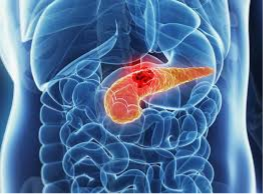The first treatment guideline for Asian pancreatic cancer patients was released, and therapeutic vaccines also officially entered the clinic
April 17, 2025
Source: drugdu
 381
381
 On April 15, 2025, during the National Cancer Prevention and Treatment Publicity Week, the international authoritative journal "European Society for Medical Oncology Gastrointestinal Oncology" officially released the "Asian Expert Consensus on Systemic Treatment of Pancreatic Cancer" (hereinafter referred to as "Asian Consensus"), filling the gap in the previous Asian pancreatic cancer diagnosis and treatment standards.
On April 15, 2025, during the National Cancer Prevention and Treatment Publicity Week, the international authoritative journal "European Society for Medical Oncology Gastrointestinal Oncology" officially released the "Asian Expert Consensus on Systemic Treatment of Pancreatic Cancer" (hereinafter referred to as "Asian Consensus"), filling the gap in the previous Asian pancreatic cancer diagnosis and treatment standards.
As the core developer of the Asian consensus, Professor Shen Baiyong, Vice President of Ruijin Hospital Affiliated to Shanghai Jiaotong University School of Medicine and Director of the Pancreatic Disease Center, told the reporter of China Business News: "This important achievement demonstrates China's global influence in the field of pancreatic cancer diagnosis and treatment, and marks that Asian pancreatic cancer diagnosis and treatment has entered a new stage. We have not only solved key problems in clinical practice, but also let the international academic community hear the strong voice from Asia."
Although there have been international guidelines such as the American Society of Clinical Oncology (ASCO) and the European Society for Medical Oncology (ESMO), there is currently no treatment guideline for Asian pancreatic cancer patients.
Shen Baiyong said that globally, pancreatic cancer has a long-term 5-year survival rate of less than 10% due to its strong hidden and rapid progression. In recent years, the incidence of pancreatic cancer in China has also increased, and problems such as uneven distribution of medical resources and inconsistent treatment standards are prominent.
"We often face such a dilemma: new drugs recommended by international guidelines are difficult to obtain in primary hospitals, while effective solutions unique to Asia are not fully included," he said. According to reports, this contradiction is particularly evident in the application of oral fluorouracil derivative S-1 - the drug is listed as a recommended treatment option in the Japanese guidelines, but is rarely mentioned in European and American guidelines.
The formulation of the Asian consensus took two years, bringing together the wisdom of top experts from 10 countries and regions including China, Japan, and South Korea, and innovatively proposed a "locally adapted" treatment strategy, which not only retains the essence of international guidelines, but also fully considers the reality of uneven economic development and uneven distribution of medical resources in Asian countries, ensuring that patients with different economic conditions can receive appropriate treatment.
The Asian consensus emphasizes the concept of "systemic treatment", highlighting the holistic treatment concept of chemotherapy, targeted therapy, immunotherapy and other systemic means as the core, combined with multidisciplinary collaboration. This treatment model breaks the previous "one-size-fits-all" tradition, and tailors treatment plans for patients according to the characteristics of different stages of the disease; the consensus also proposes a "cross-use" treatment strategy to ensure that patients can sequentially receive drugs with different mechanisms to maximize survival time.
It is worth mentioning that the Asian consensus also explicitly recommends comprehensive molecular testing for advanced patients for the first time. This detection technology, called "molecular typing", can identify tumor-specific genetic mutations, such as BRCA mutations, microsatellite instability (MSI) and other characteristics. "It's like drawing a 'genetic ID card' for the tumor. Doctors can choose the most likely effective targeted drugs or immunotherapy plans based on these molecular characteristics to achieve a truly precise attack." Shen Baiyong explained.
Pancreatic cancer, known as the "king of cancer", is extremely malignant and has a very poor prognosis. There is currently no effective treatment for patients who are resistant to chemotherapy in the late stage and cannot tolerate chemotherapy after radical surgery. To this end, Shen Baiyong's team has developed a single-target universal mRNA vaccine for the treatment of advanced pancreatic cancer patients. The vaccine was approved to officially enter the first phase of clinical trials in China last week.
Shen Baiyong told the reporter of China Business Network that this is a therapeutic tumor vaccine. In the previous IIT (investigator-initiated trial), 70 tumor patients have been treated. Preliminary results have confirmed its immunogenicity and efficacy, which can delay cancer recurrence and improve prognosis.
Looking to the future, Shen Baiyong said: "With the development of precision medicine, pancreatic cancer diagnosis and treatment are undergoing revolutionary changes. We look forward to breakthroughs in three aspects: one is the early diagnosis system assisted by artificial intelligence, the second is the development of new antibody-drug conjugates (ADCs), and the third is to optimize the combination strategy of existing drugs."
Currently, Ruijin Hospital is leading, conducting and participating in a number of international multicenter clinical studies on the diagnosis and treatment of pancreatic cancer, exploring innovative treatment options, and these results are expected to benefit more patients in the next 3-5 years.
https://finance.eastmoney.com/a/202504153377529450.html
By editorRead more on
- Rovaxitinib approved for marketing, filling the demand for myelofibrosis treatment March 2, 2026
- Warrant Pharmaceuticals’ active pharmaceutical ingredient receives Brazil’s first official GMP certification March 2, 2026
- Merck’s New Story March 2, 2026
- Rongchang Biotechnology has turned a profit! March 2, 2026
- Jiuyuan Gene’s “Simeglucopyranoside” for weight loss (Jikeqin®) has been submitted for market approval March 2, 2026
your submission has already been received.
OK
Subscribe
Please enter a valid Email address!
Submit
The most relevant industry news & insight will be sent to you every two weeks.



